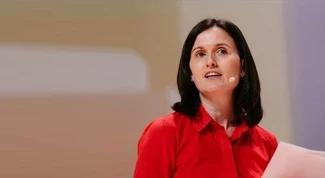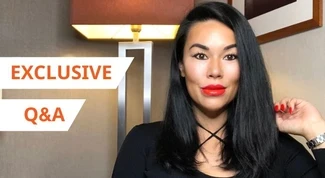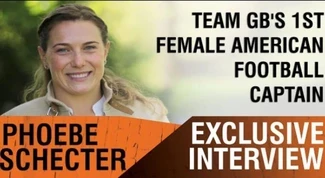Former SAS Soldier, best-selling author, and media personality, Phil Campion's extensive achievements are a testament to his outstanding drive and determination. After enduring a challenging childhood, Phil pursued a career in the military and soon rose through the ranks, passing both the Royal Marines Commando and the Parachute Regiment tests, eventually making the selection for the Special Air Services (SAS).
Working in some of the world’s most dangerous environments and successfully commanding large military teams, Phil showcased true mental strength and leadership, two qualities he explores as a public speaker. In 2011 Phil wrote his first book, ‘Born Fearless’ and later starred in his own TV documentary ‘Big Phil’s War’. As an influential media figure and popular keynote speaker, Phil shares the lessons he learned from such military experience, regularly using the Army’s ethos to educate others on peak performance and managing stress under pressure.
In this exclusive interview, Phil sat down virtually to share his approach to lockdown life, his advice for business leaders struggling to motivate their teams in these unprecedented times, and the highlight of his career so far.
Q: What advice could you give to those struggling in these unprecedented times?
“Just remember that this is all being done for a reason.
“It's a very difficult time for everybody, you're not the only person in that boat, so you need to really try and rally yourself.
“I rally myself all the time. I'm a great advocate of talking to yourself, I'll say, 'come on Phil, turn yourself around’.
“Find stuff that interests you that you can do. It’s very, very rare that you have the commodity of time and loads of it. People are always complaining, ‘I haven’t got time to do this, I haven’t got time to do that’. Well, right now you've got time, so use it well and find out what you can do to improve your life.”
Q: How do you stay motivated? Has there ever been a time when you felt like giving up and how did you overcome this?
“Yesterday afternoon halfway through my fitness session I felt like giving up!
“My motivation comes from my want, and it comes back to the regimental ethos, ‘unrelenting pursuit of excellence’.
“I want to progress and to go further. When the chips are down, that's usually when you have to dig the deepest, but it’s when you’ll get the most fulfilment out of what you're doing.
“So, if something is really hard, it's really worth doing.”
Q: How do you manage stress in high-pressure situations?
“I think you have to keep it real. You have to keep within the boundaries that you understand, and if you don't understand them, then ask and seek advice.
“That's a very important one, seeking advice. If you don't understand something, don't pretend that you know, that you can plod on and you’ll get it right because you won’t.
“So, understanding your own capabilities and boundaries is very important. This is massive for me because so many people get that wrong and work either under their capability or over their capability and therefore don't achieve their full potential.”
Q: What qualities do you possess that you believe led to your military success?
“I think the biggest quality, again from the SAS’s ethos, is self-discipline.
“The only person on this planet that understands everything you do and say is yourself. You're the only person who can look in the mirror and if you've told a lie, will know 100% that lie was told. So, you've got to have that self-discipline.
“If you have no self-discipline, you don't even trust yourself. When I speak to young people, I'll tell them, ‘you can pull the wool over your teachers’ eyes, perhaps you can pull it over everybody else's eyes, but when you stand in front of that mirror and clean your teeth before you go to bed, ask yourself, ‘did I do the best I could today?'' And you will know the answer to that question no matter what you tell yourself.”
Q: What other skills are necessary to thrive in the military?
“You also need a sense of humour. You've got to have a sense of humour when the chips are down and when everything is against you.
“I've got plenty of examples of dark humour and to air them sometimes isn't even funny, but at the time, it gets you over that hump so it’s massively important.
“You've also got to be humble as well. Humble enough to take that sense of humour and direct it at yourself sometimes, because if you can't that means you can't take self-criticism and that you take things far too seriously.
“Although life is a serious place, if you overcomplicate things by taking them too seriously and not laughing at your mistakes and learning from them, you’ll struggle.”
Q: What advice could you give to those looking to pursue a career in the military?
“Listen to other people and learn from their mistakes.
“I went wrong so many times because I didn't take the advice I was given. That's why I try and push this onto young people as much as I do now because you can learn so much from other people.
“When someone gives you a piece of advice it’s because they genuinely want to help you, and I never saw that as a young man. I always used to think, 'ah what do you know? Who cares what you've got to say, old man!' And now I look back and think, ‘why didn’t I listen to them?’
“The kids that do take people's advice and listen to people are usually the ones that progress a little quicker than others.”
Q: What is the biggest lesson learnt from a life in the military?
“For me, it’s respect. The word respect nowadays is too often bandied around in the wrong context.
“It’s about having respect for not just your peers and your superiors, but for yourself.
“You learn respect in the Army. You learn to turn up on time, to do the best you can at whatever it is that's in front of you at any given time, and that's all to do with respect for me.”
Q: Why is teamwork important and what constitutes a successful team?
“Number one rule with a team is that there is no ‘I’ in the word team, and that's massively important!
“Another ethos from the regiment is, ‘a classless but not a rankless society’. That means that nobody should have more say than anyone else. But for the running of any operation, we need to have rank, because we need to have structure in our game.
"However, we still need to listen to everybody, because invariably it’ll be the lowest private soldier who sees the enemy first. That means we need to take on board everybody's feelings and consider what everybody's got to say.
“So it’s massively important to work together as a team because the military is essentially a huge team.”
Q: What role does diversity play in building strong teams?
“Within the Army cadets we, of course, embrace diversity, but to me, diversity shouldn't be a question in the first place because everybody should be treated as an equal.
“So, I try not to recognise so much diversity, but recognise everybody individually because if I'm recognising diversity then I'm looking at difference.
“I'm not looking at difference, I'm looking at everybody the same.”
Q: What qualities make a good leader?
“Courage for me is the main one.
“A good leader would never do anything that their subordinates wouldn’t or expect their subordinate to do something that they wouldn't do. So, there's also a humility element to a good leader.
“They need to be humble enough to accept that everything they’re asking other people to do, they also need to be capable of doing themselves.
“Good leaders embrace their team and look for the one who is struggling. Everybody can applaud the person that comes first in a race, but it doesn't mean that the person who came last in the race was trying any less. And so, a good leader will recognise that and will embrace everybody as the same.”
Q: What advice would you give to corporate managers struggling to keep their team motivated at the moment?
“Don’t show off, show how. If you're a good leader, you will understand and if you don't understand, find out and show how.
“Don’t have the attitude ‘I’m the boss’. Your humility should come through when you're dealing with people, and they will work for you if you work for them. You shouldn't set yourself above, you should set yourself alongside, and then you can all move forward together.”
Q: What techniques do you employ to overcome fear?
“Knowledge dispels fear, so if you understand the situation it detracts from the fear because you're focused on what you should be doing and not what could happen.
“I try not to dwell on stuff before it's happened or worry too much about things, I try and focus on what I'm going to do, and not what could happen.
“So that's my strategy for coping with fear, is to concentrate on what I can control, rather than the hypothetical.”
Q: Do you find it hard to separate emotions from decision-making? What advice would you give to someone doing this in a business environment?
“If a doctor or heart surgeon was working on a patient, they have to keep their emotions in check. They can't be feeling sorry for their patient and start screaming and crying because they won’t get the job done. Now, they might not save the patient’s life, but they'll have a much better chance if they keep their emotions in check.
“So I'm not saying be emotionless, I'm not saying be a robot and very often your emotions will come into play but allow them to do so after the event has happened so that at the time you can actually concentrate on what you're doing.
“We used to call it being in the ‘glad to be alive club’ because we did come very close to death on numerous occasions and afterwards, you'd be glad to be alive, but at the time you're concentrating on trying to get through that moment.”
Q: What has been the highlight of your career so far?
“When I was appointed the very first official Champion of the Army Cadet Force, that was something which for me, took me full circle.
“I had a very difficult childhood; I went through all sorts of stuff, and then I had a good military career, but I had a bit of a roller coaster ride in and out of trouble. I’ve always managed to eventually turn myself around and to be accepted as the Champion and represent an organisation such as the Army Cadets, and then being able to help set people who are in the same position as me in the right direction, fills me with more pride than you can ever imagine.
“It takes me full circle as now I am helping other people, which is what I set out to do in the first place.”
Q: If you could give yourself one piece of advice at the start of your career, what would it be?
“Listen to other people and do the best you can.
“If I’d have learnt and understood the regimental ethos at the very beginning of my career, I probably wouldn’t have made some of the mistakes I made at the beginning.
“The regimental ethos is an unrelenting pursuit of excellence, high standards of self-discipline, a classless but not a rankless society, and to have humility and humour.
“If you can understand and employ that in your life every day, you’ll go a very long way.”
Book Phil Campion
Contact the Champions Speakers agency to provisionally enquire about Phil Campion for your event today. Simply call a booking agent on 0207 1010 553 or email us at [email protected] for more information.









